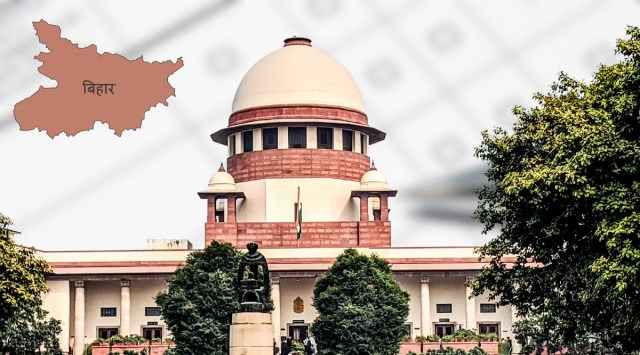SC says it will intervene if mass voter exclusion occurs in Bihar SIR. Hearing scheduled for August 12. | The Legal Observer
Subheading:
The Supreme Court responds to growing concerns over potential disenfranchisement of over 65 lakh voters in Bihar’s Special Intensive Revision process.
In a crucial development that could shape the contours of electoral integrity in India, the Supreme Court of India on Tuesday stated that it would intervene if there is any large-scale voter exclusion in Bihar’s ongoing Special Intensive Revision (SIR) process. This comes amid allegations that over 65 lakh voters might be excluded from the upcoming draft electoral rolls to be published by the Election Commission of India (ECI).
A division bench comprising Justice Surya Kant and Justice Joymalya Bagchi made the oral observation during a brief hearing of petitions filed against the Bihar SIR. The bench scheduled the matter for detailed hearing on August 12 and 13.
“If there’s any mass exclusion from the voters’ list, we will step in. The right to vote is constitutionally guaranteed and cannot be diluted arbitrarily,” Justice Surya Kant observed.
Understanding the Bihar SIR Controversy
The Special Intensive Revision is a process undertaken by the Election Commission under the Registration of Electors Rules, 1960, aimed at ensuring the accuracy and completeness of electoral rolls. Typically, this process involves field verification, door-to-door enumeration, and updates to the voter list.
In Bihar, the SIR process has attracted sharp criticism from various civil society groups, political parties, and citizens. Petitions filed before the Supreme Court allege that the process is opaque and may lead to mass deletion of eligible voters, particularly from marginalised communities and migrant populations.
According to the petitions, preliminary data from local election officials suggests that more than 65 lakh names may be missing from the new draft list — a figure that could significantly alter voter demographics in several constituencies.
Supreme Court’s Position on Voter Rights
This is not the first time the apex court has intervened in matters involving electoral roll revisions. In past rulings, the Court has consistently upheld the sanctity of the right to vote under Article 326 of the Constitution, which mandates that elections to the House of the People and State Legislative Assemblies be based on adult suffrage.
Although the right to vote is a statutory right under the Representation of the People Act, 1950, the Supreme Court has recognised that any large-scale, unjustified disenfranchisement could violate the principles of free and fair elections, forming the basic structure of the Constitution.
Legal experts argue that a mass deletion of voters without due process could amount to a violation of natural justice, especially if affected individuals are not adequately notified or given a chance to respond.
Election Commission’s Response
In a statement released earlier this week, the Election Commission of India maintained that the SIR is being conducted as per established procedures and under strict supervision of the Chief Electoral Officer (CEO) of Bihar.
“The Commission reiterates its commitment to inclusive and accurate electoral rolls. All eligible citizens will have full opportunity to verify and claim their inclusion,” said an ECI spokesperson.
The Commission also urged citizens to use online tools to check their status on the draft rolls and raise objections or claims during the designated revision window.
Eligible voters can verify their inclusion or apply for corrections via the National Voters’ Services Portal.
What Lies Ahead
The outcome of the Supreme Court hearing on August 12 will likely set a significant precedent for how large-scale electoral revisions are handled in India. The Court is expected to examine whether the current process meets the constitutional standards of fairness, transparency, and accessibility.
While the ECI has defended the SIR process as a routine and legally compliant exercise, the Supreme Court’s proactive observation signals that judicial scrutiny will remain critical in safeguarding democratic rights.
The final hearing will also test the balance between the autonomy of the Election Commission and the judiciary’s responsibility to protect the constitutional promise of universal adult franchise.
📎 For more legal developments, visit The Legal Observer or explore national updates here.
📺 For legal explainers and expert discussions, watch us on The Legal Observer YouTube Channel.




